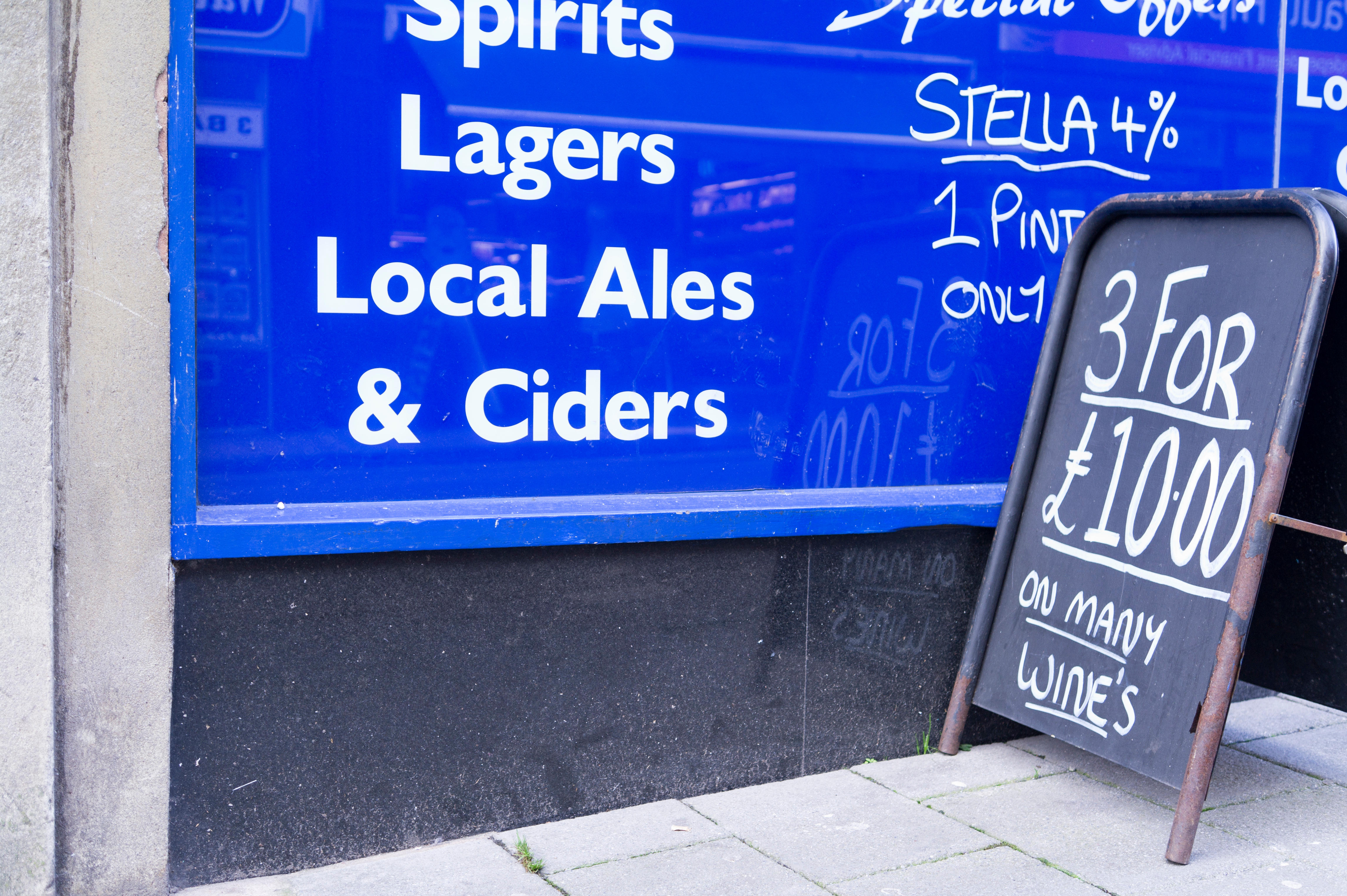No half measures: Do proposed restrictions on alcohol marketing go too far?
Back in 2017 a reader of The Psychologist sent a letter to the magazine’s editor that was published under the heading ‘Alcohol Problem’. Why, the reader – a clinical psychologist and psychotherapist – wanted to know, did a voucher for Naked Wines drop out of the latest issue of the magazine when there are “important ethical implications in advertising alcohol” as well as “clear and adverse medical, financial, psychological and judicial outcomes” involved in drinking it. Should, he wanted to know, the British Psychological Society be contributing to “normalising the alcohol industry’s message”.
It is a question the Scottish Government is currently grappling with. Alcohol is hugely important to the Scottish economy, so much so that ministers are regularly to be found talking up the benefits it brings. When the Scotch Whisky Association (SWA) announced last month that global whisky exports topped £6bn in 2022, rural affairs secretary Mairi Gougeon congratulated “everyone in the sector on another successful year”, highlighted the spirit’s “value to the Scottish economy”, and promised to work with the industry “to understand how we can improve export opportunities and remove barriers to trade”. When finance secretary Kate Forbes stopped off at the Scotch Whisky Experience during her recent SNP leadership campaign, she also spoke in glowing terms, pledging to invest in “key industries” such as whisky and noting the “enormous impact” the food and drink sector makes, “particularly in rural and remote parts of Scotland”.
 Alcohol brands such as Johnnie Walker are big contributors to the Scottish economy
Alcohol brands such as Johnnie Walker are big contributors to the Scottish economy
But alcohol is also hugely damaging to the country’s public health. Figures released by National Records of Scotland last year showed that 1,245 people died from conditions caused by alcohol in 2021, an increase of five per cent on the previous year and the highest number recorded since 2008. In total there were 22.3 alcohol-specific deaths per 100,000 people, with those in the most-deprived parts of the country nearly six times more likely to die as a direct result of their alcohol consumption than those in the least deprived. A report published by Public Health Scotland in February, meanwhile, showed there were 35,187 alcohol-related admissions to Scottish hospitals in 2020-21, the equivalent of 611 per 100,000 of the population. Though that represented a ten per cent fall on the previous year, when 681 per 100,000 were admitted, the data again showed that those in the most deprived areas were far more likely than those in the least deprived to be hospitalised while men were 2.3 times more likely than women to be affected.
Against this backdrop the Scottish Government recently consulted on whether Scotland should join countries like Ireland, Norway and France in restricting the way alcohol products are marketed as part of a wider strategy for reducing alcohol-related harms. Suggestions included everything from an all-out advertising ban – à la the Norwegian model – to something more akin to the approach in Ireland, where, after lengthy opposition and debate, recently introduced legislation means ads cannot be placed in the vicinity of schools, while limited restrictions have been introduced around alcohol promotions linked to sporting events.
Perhaps unsurprisingly, reactions to the Scottish consultation have been polarised, with retailers and drinks companies voicing their opposition by underscoring the importance of alcohol to their businesses, the jobs market and the Scottish economy, while those working in the health sector have continued to draw attention to its harms. The SWA, for example, has warned about “sweeping proposals” with “unintended consequences” while the Scottish Retail Consortium has questioned whether a direct line can be drawn between marketing activity and alcohol-related ill health. On the other side, Scottish Health Action on Alcohol Problems, the Royal College of Physicians of Edinburgh (RCP) and Alcohol Focus Scotland have all thrown their support behind the furthest-reaching suggested restrictions, each stressing the evidence-based link between early-years exposure to alcohol advertising and alcohol problems in later life.
“There is a substantial body of evidence demonstrating the impact alcohol advertising and promotion has on children and young people,” says RCP president Professor Andrew Elder.
“Young people too often feel pressured into drinking at a young age and heavy marketing of alcohol products plays a major part in that. At a recent seminar on the topic I learned of nine-year olds who are easily able to recognise a variety of brands of spirits from the shape of the bottle – that suggests high levels of exposure. Research shows that alcohol marketing leads many young people to start drinking earlier, to drink more if they are already drinking, and to drink at heavy or problematic levels. This must be considered an urgent public health concern given the widespread acceptance of the seriousness of the health conditions, both mental and physical, that alcohol can lead to in young people, as well as the wider population.”

Richard Marsham is managing partner of Edinburgh-based advertising agency Leith, which in addition to creating eye-catching adverts for alcohol brands including The Famous Grouse and Effing Gin has handled numerous public health campaigns for the Scottish Government, most notably around its pandemic response, Covid vaccinations and cancer awareness. Leith’s breast cancer advert, which featured comedian Elaine C Smith and won a prestigious UK award, is thought to have led to a 50 per cent increase in the number of women consulting a GP about breast cancer symptoms. Despite the evidence cited by those in favour of far-reaching marketing restrictions, Marsham’s view is that taking the negative step of preventing companies from promoting products that are legal but which contribute to public ill health is likely to be less effective than taking the positive step of running targeted health-related campaigns.
“At its heart the consultation means well,” he says. “Scotland does have a problem with alcohol which is well documented. Looking at ways to deal with that is the right thing to do, but it’s how you go about that. […] We’ve tackled some very tricky subjects over the years – alcohol, drug abuse, knife crime – and interventions have had a lot of success. Educating people about alcohol and the dangers of it is, to me, a better way to go rather than passing blunt legislation that penalises everybody. It isn’t helpful.”
Given the nature of his business, Marsham clearly has a vested interest in ensuring the kind of premium brands that spend vast sums on marketing their alcoholic drinks are able to continue to do so, particularly as there is no conclusive evidence that marketing bans in other countries have had the desired effect when it comes to public health. However, Nathan Critchlow, a research fellow at Stirling University’s Institute of Social Marketing who specialises in the study of how marketing influences consumer behaviour in relation to alcohol, tobacco and gambling, says an absence of evidence should not be taken to mean marketing restrictions have no positive impact on consumption levels.
“Many countries have implemented controls on alcohol marketing – Norway in the 1970s and France in the nineties – but they didn’t really properly evaluate them,” he says. “There was a big review ten years ago that said there was an absence of evidence either for or against alcohol restrictions, but the absence of evidence of something is not the same thing as having evidence that it has no effect. We don’t have that kind of specific evidence for alcohol but we can see it for other products. Tobacco started with an advertising ban and we saw that youth smoking prevalence rates went down. Anyone who draws that parallel isn’t saying we should take tobacco policies and implement the same ones for alcohol – they are different substances with different risk profiles – but it is a good starting place.”
In her foreword to the government consultation on whether and how alcohol marketing could be restricted, public health minister Maree Todd stressed the point highlighted by Elder that ads from drinks companies appeal specifically to children and young people. It might seem counterintuitive for the government to focus on preventing children from seeing alcohol ads when it is men in deprived communities who are the most likely to experience alcohol-related harms, but for Critchlow the proposals make sense if they are viewed as part of a broader plan that also includes measures designed to reach those already in addiction.
“An analogy a colleague of mine uses is to imagine yourself standing by a fast-flowing river, seeing people flowing down and wanting to rescue them,” he says. “Do you spend all your energy saving people downstream or do you go upstream too to find out how they are getting there? A good strategy for dealing with anything like alcohol or tobacco is to think about the upstream as well as the downstream.”
The figures on deaths and hospital admissions suggest that not enough is currently being done in Scotland at either end of that spectrum and, as with minimum unit pricing (MUP), which was finally introduced after much opposition in 2018, a marketing ban is likely to do little to reach those who are already gripped by alcohol addiction. But Alcohol Focus Scotland chief executive Alison Douglas is clear that, while resource must be poured into addressing the pressing health needs of those already experiencing harm, it is just as important to focus policy-making on preventing people ever getting to that stage.
“We need the Scottish Government to commit to ensuring that people with alcohol problems receive the support they need to recover but also to redouble their efforts to prevent problems in the first place by adopting internationally recognised policies to reduce consumption and harm, including restrictions on marketing,” she says.
 Minimum Unit Pricing was finally introduced in 2018 after much opposition from the alcohol industry
Minimum Unit Pricing was finally introduced in 2018 after much opposition from the alcohol industry
And, while there may not yet be concrete evidence on the effectiveness of marketing restrictions, when it comes to MUP early indications are that there is. A newly published report from Public Health Scotland that used comparative data from England – which does not have MUP – found that from introduction in May 2018 to the end of 2020 MUP led to an estimated 13.4 per cent reduction in alcohol-related deaths and 4.1 per cent reduction in hospital admissions. Notably, Public Health Scotland intelligence adviser Dr Grant Wyper says that the greatest reductions were seen for chronic alcohol health harms such as alcoholic liver disease and among males living in the most deprived areas of the country. The results, he says, are “very encouraging” in that they suggest not just that MUP is having the desired effect but that it is helping to address a particularly entrenched health inequality too. The report was so positively received that outgoing First Minister Nicola Sturgeon said MUP is one of the policies she is most proud of from her time in office.
The policy is far from an end in itself, though, and, as with MUP – which was only implemented after overcoming substantial opposition from the industry that included a reference to the UK Supreme Court – a marketing ban, in whatever form it takes, is unlikely to be an easy sell. After publishing the Naked Wines letter in 2017, the editor of The Psychologist, Jon Sutton, convened a meeting of the publication’s editorial advisory committee that resulted in a special issue carrying thoughtful essays from alcohol researchers who mused on everything from “the sheer complexity of the relationship we have with alcohol use as a society” to how “perhaps the pleasure of drinking outweighs the health benefits of exercise”. Ultimately, the committee advised against banning the advertising of alcohol because, Sutton says, in the absence of restrictions preventing alcohol ads “readers should be allowed to make their own choices about whether or not they consume alcohol”.
“It was an interesting time, which did confirm for me – if any confirmation was needed – the UK’s entangled relationship with alcohol,” Sutton says. “For every psychologist contacting me saying that ads like this were at the root of the problems they were seeing in an applied setting, there was another psychologist – or generally many more – who said they stuggled to imagine life without their Friday evening glass or two of Naked Wine.”
The consultation on marketing restrictions has only just closed, meaning it will be many months before the Scottish Government publishes its response and potentially years before any legislative changes come through. Given how entangled even the government’s relationship with alcohol is, it will have to tread an exceedingly fine line if it is ever going to get there.
Holyrood Newsletters
Holyrood provides comprehensive coverage of Scottish politics, offering award-winning reporting and analysis: Subscribe